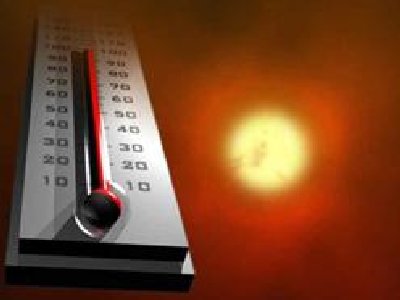NYC Emergency Management (OEM) and the Department of Health and Mental Hygiene have advised that hot weather could be dangerous to vulnerable populations is forecast through Sunday, July 7.
According to the latest National Weather Service forecast, the heat index is expected to reach or exceed 95 degrees Friday through Sunday. OEM urges New Yorkers to take precautions to prevent serious illness that can result from the heat, especially among vulnerable individuals such as seniors and those with chronic health problems. New Yorkers who are vulnerable should use air conditioning to stay cool, go to a place that has air conditioning if it is not available at home, drink water at regular intervals, and limit strenuous activity, especially during the hottest parts of the day. New Yorkers are urged to check in on vulnerable friends, family members and neighbors to help them stay cool.
City cooling centers will be open Sunday, July 7, to help New Yorkers stay cool. Cooling centers are air conditioned places, such as Department for the Aging (DFTA) senior centers, libraries, and community centers, that are open to the public during heat emergencies. To find the cooling center closest to you, call 311 (TTY: 212-504-4115) or visit OEM’s Cooling Center Locator at www.nyc.gov/oem.
FACTS ABOUT HEAT ILLNESS
Heat illness is serious. Prolonged exposure to the heat can be harmful and potentially fatal. The added stress caused by heat can also aggravate heart or lung disease even without symptoms of heat illness. The risk for getting sick during a heat wave is increased for people who:
Do not have or do not use air conditioning
Are age 65 or older
Have chronic medical or mental health conditions
Take certain medications, which can disrupt the regulation of body temperature
Confined to their beds, trouble with being mobile, or are unable to leave their homes
Are severely overweight
Consume alcohol or illegal drugs
KNOW THE WARNING SIGNS OF HEAT STRESS
If you (or someone you know) feels weak or faint, go to a cool place and drink water. If there is no improvement, call a doctor or 911.
Call 911 immediately if you have, or someone you know has:
Hot dry skin OR cold clammy skin
Trouble breathing
Rapid heartbeat
Confusion, disorientation, or dizziness
Nausea and vomiting
CHECK ON THOSE PARTICULARLY VULNERABLE TO THE HEAT
A small but crucial gesture can help ensure that we all have a safe and healthy summer: Get to know your neighbors, and contact neighbors and relatives — in person or by phone — at least twice a day during heat waves.
Pay special attention to the elderly, the very young, and anyone with a medical condition. New Yorkers should check in on older neighbors who may be isolated from friends and family.
Air conditioning is the best way to keep cool when it is hot outside, but some people do not have an air conditioner or do not turn it on when they need it. Encourage them to use air conditioning. Help them get to an air-conditioned place if they cannot stay cool at home. Make sure they are drinking enough water.
ADDITIONAL HEALTH AND SAFETY TIPS FOR PROTECTION AGAINST THE HEAT
Stay out of the sun—avoid extreme temperature changes.
Wear lightweight, light-colored clothing. Light colors reflect some of the sun’s energy.
Drink fluids—particularly water—even if you do not feel thirsty. Your body needs water to keep cool. (Those on fluid-restricted diets or taking diuretics should first consult their physician.) Water is the safest liquid to drink during heat emergencies. Avoid beverages containing alcohol and/or caffeine.
Eat small, frequent meals. Avoid strenuous activity, especially during the sun’s peak hours—11 A.M.
to 4 P.M. If you must do strenuous activity, do it during the coolest part of the day, which is usually in the morning between 4 A.M. and 7 A.M.
If possible, go to an air-conditioned building for several hours during the hottest parts of the day.
New York City may open cooling centers around the five boroughs. When cooling centers do open, call 311 or go to nyc.gov to find the nearest center.
Cool down with a cool bath or shower.
Participate in activities that will keep you cool, such as going to the movies, shopping at a mall, or swimming at a pool or beach.
Cover all exposed skin with an SPF sunscreen (15 or above); wear a wide-brimmed hat to protect your face and head.
Never leave your children or pets in the car.

